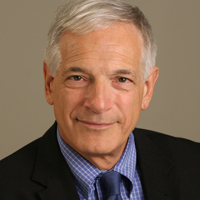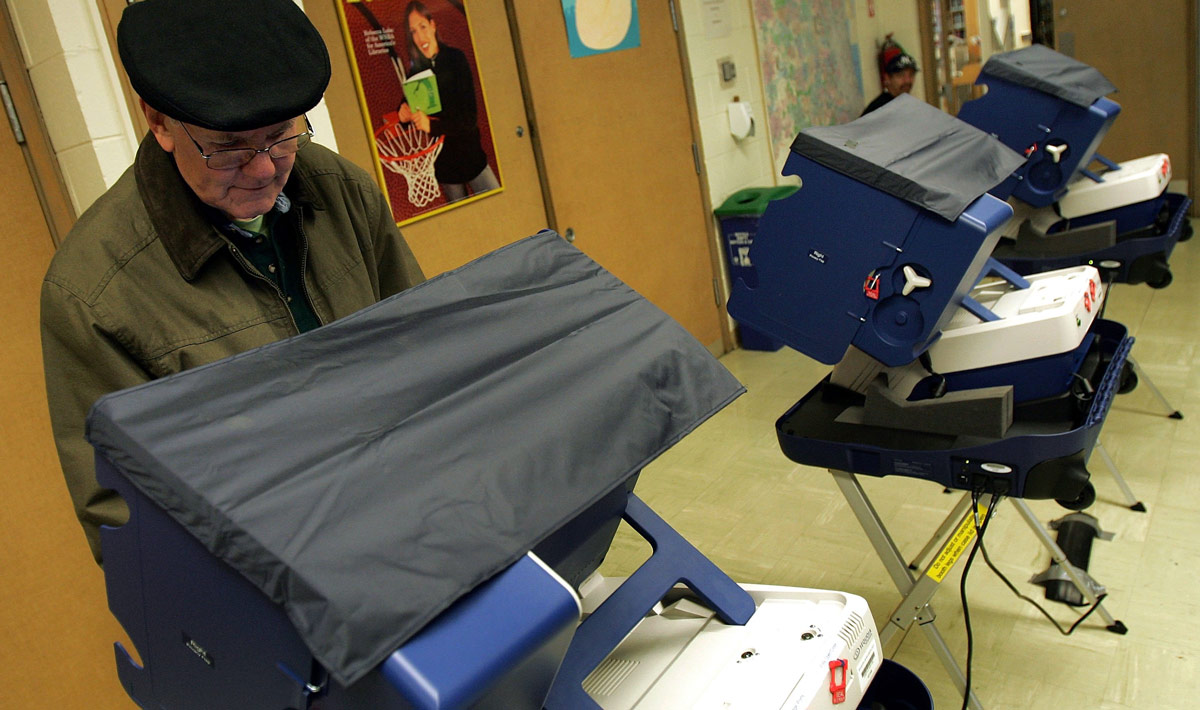
Robert Gallucci served as MacArthur's President from 2009 to 2014. He changed the Foundation's culture and practices, embedding assessment in all programs to ensure their impact and giving the professional staff the freedom to apply their talents. In addition to initiating new grantmaking to strengthen American democracy at a critical and challenging time for the nation, he also launched the discovery grants process to spur innovative new ideas.
From 2012 to 2016, MacArthur awarded over $24 million in grants to 37 organizations working to strengthen American democracy by advancing a modern system of voting administration; pushing back against laws that have the result of preventing groups of eligible citizens from exercising their right to vote; and advocating for better regulation of and to advance the public dialogue about the influence of money in politics. Our commitment continues today through journalism and media grantmaking, which strengthens American democracy by informing, engaging, and activating Americans.
During your tenure as MacArthur's President (2009-2014), you launched a grantmaking initiative aimed at strengthening American democracy. Why? And what did you see as the challenges facing our democracy?
RG: Early in the Obama administration, the leader of the opposition party in the Senate said that the primary objective was to prevent the president from achieving his legislative goals. He said his objective was to make sure that the president was not re-elected. This was an outrageous assertion of the importance of political gain, without regard to the substance of policy or the impact on the national interest. It was unambiguous evidence of the failure of the American political system to provide for the common good. Ever since then evidence of the failure of our system has continued to mount.
Early in my presidency at MacArthur it occurred to me that our domestic programs, aimed at preserving affordable housing and improving governance and life in American cities, education at the primary and secondary levels, juvenile justice, even the security of our nuclear materials all depended upon a functioning legislative, executive, judicial and administrative system in the United States at all levels. It was the assumption of our strategies for this work, all our domestic work, that government functioned in the best interest of the people. But this assumption seemed entirely unwarranted.

As Elspeth Revere and I went around the country convening groups of people who cared about American democracy and its effectiveness in providing for the common good, it was clear that nobody thought that the system was working. We heard over and over again about hyper-partisanship, unwillingness to compromise and an overall lack of civility in political discourse.
At the same time, analyses of the hyper-concentration of wealth and income to a degree that had not been seen before in the 20th or 21st Century, ever since data had been collected, impressed observers with a new economic and social reality. While the forces of globalization and technological innovation were clearly important to the complex explanation for this development, it was evident that the American political system was also responsible. Most relevant was the emerging belief among average Americans that the playing field was not level, that the wealth and influence of the top tenth of one percent of the country were not simply the result of merit and hard work, but directly a product of a rigged system. It seemed to me that the American political system was failing, and that this was a critical area in which our grantees could have impact.
Are these challenges simply a sign of our times or a result of the way our system of government is structured?
RG: It seems to me that our political and economic system is permissive in character, something that we value, but also something that allows for great damage through the pursuit of self-interest when unconstrained by any concern for the common good or the national interest.
How can philanthropy help address these challenges?
RG: American philanthropy has the potential to make an impact on all this far beyond that which it contributes through its grantmaking. It seems to me that the leaders of American philanthropic institutions are almost uniquely regarded by the American people as intelligent and sage individuals committed to improving the conditions of their fellow citizens without regard for personal gain or partisan purpose. Perhaps the presidents of great American universities are or were similarly regarded, but they are clearly also burdened with the need to raise funds for their institutions. The major foundations operate under no such handicap. Their leaders can, therefore, play a role virtually unique among public intellectuals in arguing the case for the common good.
What should individuals do to help?
RG: Individuals are the citizens of the United States, and their obligation, their duty, is to educate themselves and to find ways to be engaged civically and to make a difference. They ultimately determine who will lead us and in what direction.
Are you optimistic or pessimistic about the future of American democracy?
RG: There is a concept that has become popular in philanthropy: "resilience." It is a good concept. I think Americans and American democracy are resilient. That said, we all know that when you are in a hole and wish to get out, first, stop digging. Unfortunately, we are still digging. And the hole we are in is now quite deep. That means, I think, America can address problems of equality, poverty, equity, and structural issues relating to its political institutions, but it cannot do so quickly.



